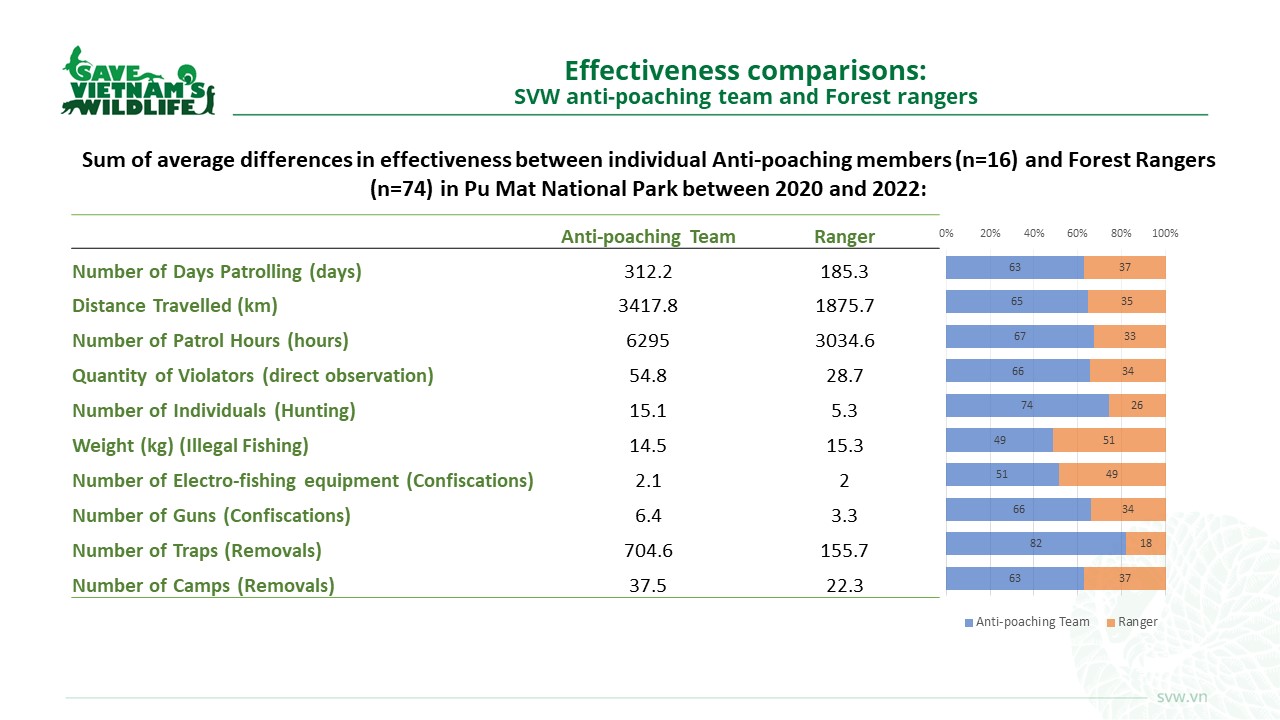


Anti-poaching (AP) teams are hired and funded under Save Vietnam's Wildlife, and approved by protected area managers where they sign a joint contract between the two. They undergo approximately one month of training in Vietnamese forestry law, species identification, self-defense, field training, first aid, and using SMART.
AP patrols stay with forest rangers for 15-20 days of patrolling at various ranger stations each month, and an assigned Data Manager typically processes, cleans, analyzes and reports SMART data for all patrols to the park director and SVW coordinators. At the beginning of each month, a SMART report is generated by the data manager; based on the intelligence from this report, a patrol plan will be discussed with the ranger and anti-poaching members, and then submitted to the protected area director for approval; mobile units are on standby and led by forest rangers to rapidly respond to any emergencies, locations outside of planned patrol areas, or situations accessible by road.
Rangers were trained to use SMART mobile through vertical knowledge transfer in the field, and by the end of 2020, 100% of the forest rangers (73 people) were all effectively using SMART, increasing patrol data coverage across the entire protected area (Figure 1).
- Collaboration between NGO-based law enforcement assistants (the SVW anti-poaching team) and protected area managers and forest rangers
- Willingness for forest rangers with senior status and position to take advice and adaptive direction from newly trained younger staff
- Willingness for rangers and anti-poaching team members to adapt to new technologies and operational systems to achieve a shared goal.
- We have learned through the patrol observations, local information, and data trends that there are primary periods of poaching activity in the park which correspond to bamboo/honey harvesting seasons and months proximal to Tet holiday (Lunar New Year), whereby locals have a high demand for wild meat as a special gift to family and friends.
- When directly compared, joint patrols with rangers and anti-poaching team members were shown to be substantially more effective than ranger-only patrols in terms of illegal activity documented and mitigated. This is probably due to the effectiveness of SMART data collection (Figure 2).
- Since anti-poaching members are not government employees like rangers, they do not have the power to make arrests, when necessary, therefore patrols with only anti-poaching members are only able to document but not mitigate active human threats to wildlife.